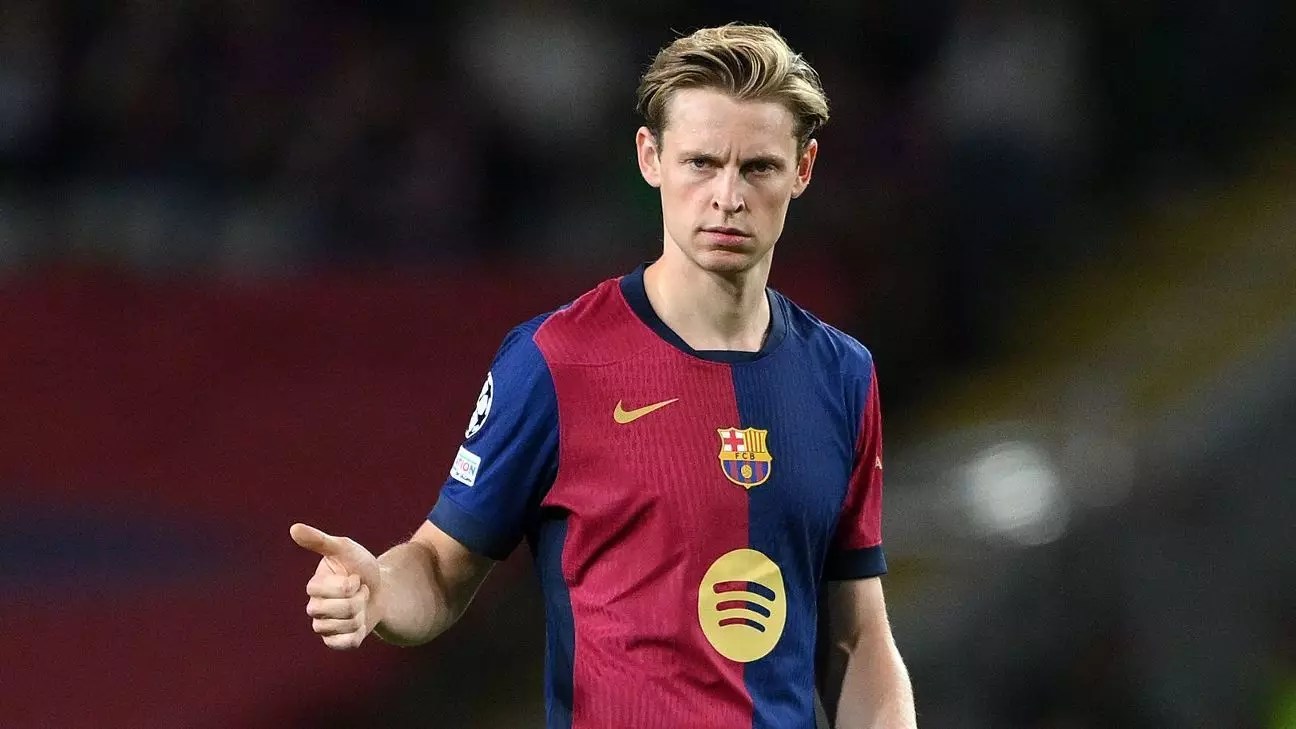Frenkie de Jong, a player whose talent was once the talk of the football world, has expressed his discontent with the trophy count since his arrival at FC Barcelona. The 27-year-old Dutch midfielder, who switched from Ajax to Barcelona in 2019 with high hopes, finds himself reminiscing about a time when lifting multiple trophies was almost a given. Unfortunately, reality has not lived up to the childhood dreams that brought him to Catalonia. Despite the glamour and allure of wearing the Blaugrana jersey, de Jong’s career has been marred by injury setbacks and a sense of unfulfilled aspiration, echoing the sentiment that sometimes dreams can be hollow.
Injuries can profoundly alter the trajectory of a player’s career, and for de Jong, persistent ankle issues have been his nemesis over the last couple of seasons. The impact of these physical setbacks is plain to see not just on the pitch, but in his mental state as well. He has candidly admitted in interviews that these injuries have led to “mental trauma,” a reflection of the frustration born from being sidelined during critical periods. Playing at Barcelona, a club that demands excellence, while grappling with physical limitations has undoubtedly been challenging for de Jong. As he transitions into the last phase of his contract, which expires in 2026, he grapples with the urgency of returning to prime form in a hyper-competitive environment.
De Jong’s comments about his trophy haul provide a stark reflection on his expectations versus reality. He projected a future filled with silverware, yet after five years, he has managed just one La Liga title, one Copa del Rey, and a Supercopa to show for his efforts. This despondency reveals the inherent pressure athletes face at elite clubs, where personal accolades are often measured by the team’s success. His realization that he may have misjudged his career trajectory at Barcelona has led him to a level of resignation. “I thought at least double that,” he stated, revealing the depth of his disappointment. Such transparency highlights the burdens of professional football, where glory can often feel fleeting.
Despite the disappointments, de Jong’s commitment to Barcelona remains contingent on his ability to contribute effectively. He noted that personal enjoyment is secondary to performance on the pitch, reflecting a maturity that often characterizes the best athletes. In his words, if he feels he is not able to make a difference or help the team win titles, he would not hesitate to consider leaving. This mindset positions him not only as a devoted player but also as a pragmatist who recognizes the harsh realities of professional sports. His previous refusals to join lucrative opportunities abroad, such as the interest from Manchester United, emphasize his desire for long-term contributions rather than immediate financial gain.
With Barcelona’s current struggles, particularly around consistency and top-tier competition in La Liga, the situation is precarious. De Jong’s personal crusade to regain his spot in the starting lineup is paramount. He remains aware of the ticking clock in his career, knowing that the window for substantial accomplishments narrows with each passing season. “Let me start playing football again first,” he stated, prioritizing his return to form before making any hasty decisions about his future. This shows his focus on the present—a vital trait in a sport where uncertainty lurks at every corner.
Frenkie de Jong’s narrative at Barcelona is a complex blend of aspiration, challenge, and introspection. As he navigates this critical phase in his career, the balance between personal dreams and team expectations will undoubtedly shape his path forward. His reflections serve not only as insights into his character but also as a reminder of the unpredictable journey of professional sports, where both triumph and disappointment exist side by side. For de Jong, the hope remains that he can still add to his trophy cabinet and live up to the dreams that led him to Barcelona in the first place.


Leave a Reply